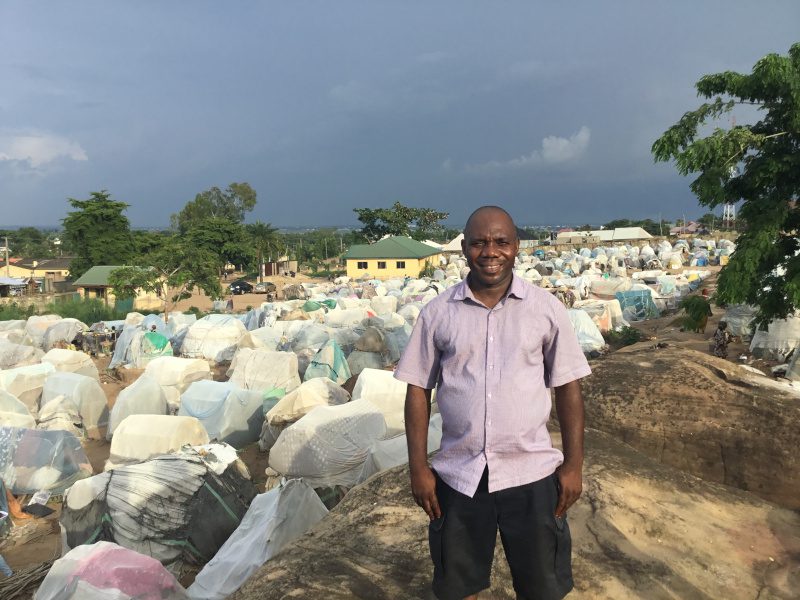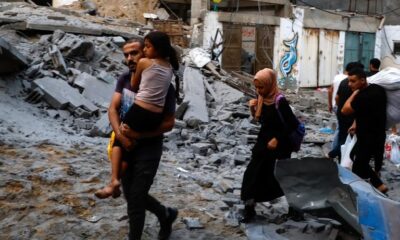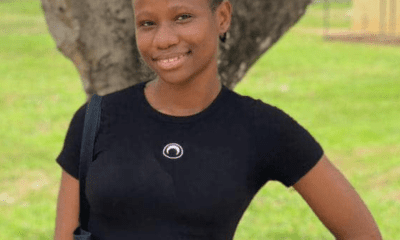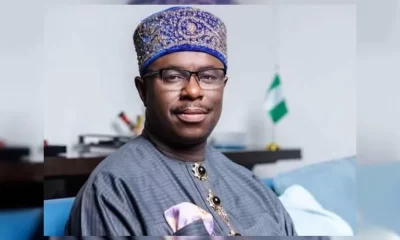National Issues
Thriving on the Vulnerability of Others: The Plight of Benue IDPs –By Matthew Ma
Pope Francis gives enormous importance to the plight of the millions of forgotten men, women, and children forced to migrate within their own countries, known as ‘internally displaced people’ (IDPs). According to him, the pastoral role of the Church toward Internally Displaced People is to offer suggestions and guidance for action based on four words: welcome, protect, promote, and integrate. These words describe the Church’s mission to all those living in existential peripheries and concrete peril who need hospitality, protection, promotion, and integration.

“The housing conditions of internally displaced people in Makurdi are constructed from improvised, locally available materials such as clothes and rags. The makeshift houses are overcrowded and pitched side-by-side without proper spacing, leading to frequent epidemic outbreaks. The Makurdi rainy season (July–November) has started, further undermining the poor shelter state of the camp situation.”
Nigeria, our country, seems to have lost its very soul because it is no longer a healthy entity. The good health of any nation consists of its capacity to offer its citizens a territory where they can feel at home, feel secure, and enjoy the necessities of life. This situation is, unfortunately, no longer the case in our dear country, Nigeria, where armed conflicts, armed robbery, kidnapping for ransom, insurgency, banditry, and extrajudicial killing persist as the order of the day. When a nation loses its soul, its people lose the cohesive elements of human relationships. A country that has lost its soul is characterized by inept, uncaring leadership that functions through the selective allocation of positions, privileges, and resources and by a discriminatory application of justice. It also has leaders who, rather than care for the citizens, exploit and denigrate them. Such a nation takes food out of the mouths of its citizens and watches them starve. It deploys its scarce resources to the advantage of the rich and powerful while offering mere crumbs to the poor and weak. A nation that has lost its soul breeds a citizenry where nobody cares for anybody else. Nigeria exhibits all of these traits, no doubt. No wonder, Nigeria is home to 3.6 million IDPs, of whom 1.9 million are living in protracted displacement in the north central-eastern state of the nation.
One of the events that has put Benue on the map as a country in recent times is the herders and farmers crises that are taking the North Central by storm. Anthony Heassly, in his book The Beginning of War, aptly observed that one of the most significant challenges facing people in the 21st century is how to live and work peacefully with others in all spheres of personal and public life. The above expression captures the plight of the people of Benue State, who have suffered violent attacks because of herder-farmer conflicts, thereby rendering them internally displaced from their native homelands and leaving them at the mercy of humanitarian groups. Hence, it has been challenging for Benue people regarding the protection of their lives and property. In fact, the highest part of the story of the people is one of violent conflicts orchestrated by people or groups pursuing conflicting interests, be they political, religious, ethnic, elitist, or even economic.
Since 2010, the herders have used arms to launch war on the people of Benue to gain access to grazing land by force. Between 2010 and 2021, the group has ferociously attacked, maimed, killed, and displaced millions of people in Benue. The devastating nature of the attacks seems to make Benue State the epic center of the herders-farmers war in Nigeria. The most devastating part of this war occurred in 2018, when the herders, during a night raid, killed several people in the Guma Local Government Area of the state. Since then, there has been a spate of killings linked to the herders, who have often come out to claim responsibility for the massacre. These attacks lend credence to the claims by the Global Terrorism Report Index for 2015, which classified these herders as the fourth deadliest group in 2014. The report claimed that the herders killed about 80 people between 2010 and 2013 and 1,229 in 2014. These violent attacks occurred predominantly in the North-Central States of Benue, Nasarawa, Plateau, and Kaduna. The attacks on the farmers by the herders often appear to be highly coordinated and spontaneous across the state. These attacks occurred in Guma, Katsina-Ala, Makurdi, Logo, Agatu, Gwer West, and Kwande Local Government Areas. The attacks in these communities involved large-scale destruction of lives, farmlands, properties, rape, abduction, and displacement of farmers. An attack that points to an orchestrated plan by herders to evict farmers from their ancestral land. One of the major consequences of these attacks and the displacement of villages is the emergence of Internally Displaced Persons (IDPs) with the creation of IDP camps in selected Local Government Areas in Benue State. However, due to the complex nature of the crisis, most people have been uprooted from their farms and placed in IDP camps. But how were they uprooted from their land?
Historically, relations between herders and farming communities have been harmonious. By and large, I remember growing up in our village, we used to live in a peaceful, symbiotic relationship with herders. Herders’ cattle would fertilize our land in exchange for grazing rights. But in the early 20th century, some herders started shifting their migratory routes farther south. They were pushed by a series of droughts in the far north, attracted by heightened security in central and southern Nigeria and better control of parasitic diseases in the Central and Southern zones. Initially, migration was seasonal, with herders spending December to May in the central zone before returning north. Over the last two decades, as available pastures shrank in the far north, herders began living in the central region longer – from December to June or July. More recently, some started grazing their herds in the central zone permanently. This situation triggered increasing disputes over land and water use with central Nigeria’s growing populations of crop farmers.Other aggravating factors behind the escalating conflict are climatic change, population growth, and technological and economic changes. We also have crime, political, and ethnic strife as traditional conflict management mechanisms collapse. Apart from that, a dysfunctional legal regime that allows evil to go unpunished encouraged farmers and pastoralists to take matters into their own hands. In the early days, pastoralists were people with experience to ensure the cattle did not eat farm products. Nowadays, the changing practices among pastoralists have strained this concept. Some cattle herders gradually adopted strange lifestyles, leaving cattle herding increasingly to young boys aged nine to 25, who often lack the civility and maturity to resolve disputes amicably.
The nature of IDPs is by no means debatable. While the other States have, to some extent, internally resolved their IDP problems, Benue State continues to depend on external assistance to resolve its IDP problems. The inability of Benue State to effectively manage the IDP problem has resulted in the mass migration of IDPs in search of refuge in neighboring local governments. A reflection on the figures of IDPs demonstrates that Benue has several IDP Camps. Internal conditions in Benue have occasioned a significant rise in the number of IDPs. In short, bad governance over the years is responsible for the recurring ethnic, political, and religious conflicts. The conflict has, in turn, caused internal displacement. The challenges of effectively managing internal displacements are enormous and complex because of certain intervening internal variables. One good example is the institutional decay occasioned by state complacency and corruption, which has undermined the effective management of IDPs in the State. Another challenge in managing IDPs in Benue is the lack of a reliable IDP figure. Sources from the Benue State Emergency Management Agency (SEMA) have estimated about 1,617,124 IDPs, while local organizations opine that there are only 600,000 internally displaced persons in Benue. In 2018–2022, SEMA estimated a staggering 240,068 people were displaced in several households. These figures are, however, debatable because the National figure did not differentiate between those still displaced and those who have returned. More so, it is because some IDPs deliberately refuse to be identified as IDPs or because relatives accommodate them in new localities away from their displaced ancestral homes.
Living as a refugee within your home, country, and people is disgusting and challenging for even the toughest of us. Yet, we must remember that eight official IDP camps live that very life across Makurdi, the Benue state capital. According to records obtained from the Benue State Emergency Management Agency, SEMA, in the official and unofficial facilities or camps, we have records of inmates who moved into the haven in 2019, 2020, and 2021. A breakdown of the 2019 record of IDPs showed that the Abagena camp has 8,210 IDPs, while the Abagena host community is home to 7,691 inmates. Daudu Camp 1 (UNHCR Shelter) has 5,451 IDPs; Daudu II has 20,172; and Gbajimba Camp is home to 29,500 inmates. Other camps include the Anyiin camp with 7,466 IDPs, the Ugba camp with 3,080, the Abeda camp with 2,668, and the Abeda host community with 22,948 IDPs. The Agan camp has 4,798 inmates, while the host community is home to 5,517 IDPs. Agatu is home to 65,347 IDPs, Angwan Ochonu has 4,951 IDPs, Anyiin community has 65,496 IDPs, Daudu community is home to 43,344 inmates, FHA camp has 4,353 IDPs, and Gbajimba community is home to 28,875 IDPs. Gwer West has 60,243 IDPs, Ichwa has 9,587, Kwande has 9,465, LDEA NASME has 23,151, LGEA Tyodugh has 5,672 IDPs, NEPA Quarters has 8,008, Ogiri Ajene has 9,506, Okpokwu has 4,080, Tionsha has 20,500, and Ugba community is home to 8,651. The total number of IDPs living in official and unofficial camps and host communities since 2019 is 483,692. The number of those displaced as a result of herdsmen attacks, as updated in June 2020, is 75,811. A breakdown of the figure indicated that Mbakunu (Kwande) is home to 2,951 IDPs, Mbaper (Kwande) is hosting 1,602 IDPs, Iyon (Kwande) has 489 inmates, and Jato Aka/Nyihemba (Kwande) has 37,675 IDPs. Others are Ogere (Obi) 17, 858, Torkula (Guma) 817, Agasha (Guma) 1,502, Kaseyo (Guma) 652, Ikponko (Guma) 712, and Uikpam (Guma), home to 11,554 IDPs. These figures, updated in December 2020 as a result of sustained attacks by armed herders in more communities, indicated that more communities in Guma, like the Uleva community, are hosting 13,855 IDPs, the Iye community is hosting 16,578 displaced persons, and the Tse Akenyi community has 22,873 IDPs. The logo shows the Iorja community hosting 14,000 IDPs, the Tse Akpam community with 11,369, and the Igbatim community with 16,541 inmates. In Makurdi, there are 18,000 IDPs in the Imande Akpu community, while the Tse Chagu community is home to 6,000 IDPs.
The total number of people displaced in 2020 because of sustained attacks on Benue communities by suspected herdsmen militia is 205,027. The statistics of displacement as a result of further attacks on several communities in Benue in 2021 showed that Guma LGA, Uikpam IDP camp, is home to 27,222 persons, Yogbo community hosts 19,911 persons, Udei community hosts 20,932, Ortese community harbors 17,654; Umenger has 19,277, and Yelewata community is host to 17,00 IDPs. In Gwer West, the Naka community harbors 23,070 IDPs, the Aondoana community has 15,171, and the Tyoughtee community has 19,888 IDPs. In Makurdi, there are 16,865 IDPs in the Atson community and 11,987 in the Anter community. The Logo camp harbors 13,065 IDPs in Tse Agure, while 1,765 IDP camps are in the Tse Akau Akpor community. Konshisha, where a military operation recently took place to recover the weapons of slain soldiers by bandits, has 5,958 IDPs in the Gungul community. Agidi community is home to 1,143 IDPs, Aku community has 3,852, Adoka community has 702, Bonta 2,250, Gbinde community has 1,548, Tse Anyon has 1,512, and Guleya Community is home to 2,142 IDPs. In Oju LGA, the Ukpute community is host to 1,954 IDPs, Agatu LGA has 10,981 IDPs in the Okokolo community, 21,098 in Obagaji, 10,400 in Aila, 12,091 in Odugbeho, and Oweto communities harbor 11,850 people. A vexing issue of this displacement is the unofficial IDP camps operating without proper attention. According to SEMA, the situation in the state is similar to what is happening in the North East and, therefore, equally deserves serious attention. Another alarming issue is those doubting the population of IDPs in the state. Some people have not visited Benue but concluded that there are no IDP camps here. Perhaps, this is why the Federal and State governments have not fully supported the humanitarian efforts of the IDPs to relocate them to their ancestral land. I use this opportunity to challenge those who have not yet visited Benue State and those who cannot go to the places where the IDPs are, who stay in Abuja and elsewhere, to embark on a visit to the state to verify the figures.
One of the reigning jokes in contemporary Nigeria, told only partly facetiously, is that when students complete their education, they have two options besides unemployment: founding a church or starting a non-governmental organization (NGO). Given Nigeria’s economic woes and the shortage of decent job opportunities, the humor about churches and NGOs is a collective commentary on the difficulties of everyday life. It is also an allusion to the promises of development, albeit in a manner that is simultaneously a criticism of development’s failures, because the unarticulated assumption in the joke is that the NGO arena and what Nigerians call ‘new breed churches’ are fertile grounds for corruption. But visiting these IDP camps verifies the statement about opening a church or an NGO. Thousands of NGOs and churches troop out daily to spend time with the IDPs. As good as this may sound, there are issues with these visits. Some NGOs and churches bring visitors to show the IDPs their love and support. But others bring people to the IDPs to garner sympathy worldwide and enrich themselves. The question is, are we not thriving on the vulnerability of the IDPs? IDPs are often underprivileged and live in precarious situations themselves. They do not have the resources and infrastructure necessary to make a home. They rarely benefit from funding meant to assist them. These hindrances can easily create unnecessary tension. I call on NGOs providing aid and assistance to IDPs to contribute positively to health, education, and welfare. I encourage them to tailor help and assistance to include the development of medical, educational, and social service infrastructure upon arrival and to cooperate actively in empowering local institutions so that together with the government, they will develop programs and services responding to IDPs and the most vulnerable communities hosting them.
Pope Francis gives enormous importance to the plight of the millions of forgotten men, women, and children forced to migrate within their own countries, known as ‘internally displaced people’ (IDPs). According to him, the pastoral role of the Church toward Internally Displaced People is to offer suggestions and guidance for action based on four words: welcome, protect, promote, and integrate. These words describe the Church’s mission to all those living in existential peripheries and concrete peril who need hospitality, protection, promotion, and integration. To respond to the challenges facing the IDPs, the Catholic Church is called to promote the culture of encounter within the host communities by creating occasions for personal contact with IDPs, establishing volunteer groups and special funds to assist all people in vulnerable situations, and providing pastoral care and services to both IDPs and host communities. The Church has an obligation to remind the government of its direct responsibility for all its citizens, including the internally displaced. Also among their responsibilities are their basic needs, defending their human rights, and promoting their dignity. As a Church, we are before people who have tried to escape an unendurable fate, only to end up living in makeshift dwellings, still in dire need. They, too, are human beings, our brothers and sisters, whose children are entitled to the same legitimate expectations of happiness as other children. If generosity is in us, it would be impossible to remain silent before the disquieting images showing stretches of IDP camps throughout Benue State. Yet, as we speak, the determination to assign a priest responsible for the pastoral care of the IDPs is unclear. In the meantime, no priest is assigned to offer direct pastoral care to the IDPs. However, you can find pockets of priests here and there offering humanitarian assistance on their own to the IDPs. It is high time the Catholic hierarchy took this mission seriously. Just as the humanitarian needs of the IDPs are crucial, so are their pastoral needs. We need an office of the diocesan refugee service that will take care of the IDPs. The Jesuits have the Jesuit Refugee Service, with its country office in Abuja, taking care of refugees nationally. As we know, the work is so enormous that we cannot be in all places at all times; hence, we need refugee services at the grassroots level to collaborate with us.
Another issue that occurs daily in the IDP camps is sexual exploitation, which breeds other forms of intimidation, victimization, harassment, inappropriate behavior, and offensive sexual advances by men. Women make up more than 50 percent of the IDP population in Benue. And as they survive on less than 780 Naira, their livelihoods depend on goodwill donations from charitable organizations and government agencies. Hence, due to overlapping vulnerabilities linked to economic security and protection, many are at risk of sexual and gender-based violence in the camps. Many women and girls come to the IDP camp without children but get pregnant and become mothers without partners. As young women and girls struggle to meet their survival needs in IDP camps, sexual exploitation continues to increase. As a result of the shortage of food, water, and medical treatment, most of these women submit themselves to men, who tend to be their saviors. In their struggle for survival, they arrive in a desperate situation and are ready to do whatever it takes to live. Despite being among the most vulnerable people in the world, women and girls often have to endure sexual slavery and other forms of exploitation to survive. The fact that women and girls have had to endure rape to avoid hunger is tragic and a clear violation of their human rights. Yet, destiny’s helpers meant to protect these people have instead chosen to violate these defenseless individuals’ rights because they have access to crucial resources, authority, and influence. A female IDP used these unsettling words to sum up her experience in the hands of a destiny helper: Men have raped me so many times that I can’t even remember. Nigerian law specifies a minimum of 12 years imprisonment for rape offenses without the option of a fine. But the girls have no idea of the provisions of this law, nor did they even know the law existed. Even if they knew, I doubt they would have sought redress, having no money to afford a lawyer. Do the authorities intend to address these issues of violations of human rights in IDP camps? The government has failed to take enough steps to protect women and girls in refugee situations. But in 2018, the Nigerian Senate promised to investigate sexual assault claims in IDP camps. Unfortunately, the cycle is still active after many years of inaction. The Nigerian government is not interested in solving these problems. If they claim they are doing something to stop these violations, then it is not enough to protect women and girls and ensure that perpetrators of these violations against them face punishment.
Whose responsibility is it to protect and assist internally displaced persons? As a crucial element of sovereignty, the Governments of the states where internally displaced persons live have the authority to provide humanitarian assistance and protect them. The NGOs and the Church have a complementary role. Hence, all are called upon to cooperate to help address their needs under the collaborative approach. The government must seek constructive ways to reinforce and uphold instruments of International Human Rights and Humanitarian Law and to provide for the security and well-being of all those under its jurisdiction. This notion requires adequate laws and policies on internal displacement in conformity with the dignity of the human person. The government must develop a comprehensive system of responsibility for internally displaced persons. Thus, efficient protection will require not only the availability of more human and financial resources but higher institutional support and comprehensive mandates. But protecting the human rights of internally displaced persons entails the adoption of specific and appropriate juridical instruments and mechanisms of coordination on the part of the government, whose legitimate interventions cannot be human rights violations.
The humanitarian crisis resulting from insurgents in Benue shows no sign of declining. Apart from concerns about the escalating number of internally displaced persons (IDPs), the poor living conditions in the IDP camps are alarming and call for more commitment from all concerned. To respond to this challenge, I call on the government to develop and implement programs and policies that will rehabilitate IDPs affected psychologically during armed conflicts so that they can structure their lives and those of their families. I call on the State to offer specialized measures and protection for IDPs to ensure they are safe from harm and foster their full participation in society. As people of goodwill, we should promote awareness and education campaigns to stop the abuse of internally displaced women and children and advocate for governments to apply the law appropriately in dealing with these crimes. Those who sexually exploit women should be punished and cautioned about the damage it causes.
The housing conditions of internally displaced people in Makurdi are constructed from improvised, locally available materials such as clothes and rags. The makeshift houses are overcrowded and pitched side-by-side without proper spacing, leading to frequent epidemic outbreaks. The Makurdi rainy season (July–November) has started, further undermining the poor shelter state of the camp situation. On top of the lack of appropriate housing, these IDP settlements offer limited services due to their vast needs and limited resources. Several IDP camps I have visited do not even have proper shelter above their heads. Many families have no roof to protect them from the hot sun, the rain, and the bone-chilling winds. Thanks to relief aid organizations, refugee camps are being provided with more and more resources so that every person can enjoy proper shelter, but right now, many do not have a roof over their heads. I appealed to the governor, Fr. Hyacinth Alia, to do everything possible to return all Internally Displaced Persons (IDPs) to their ancestral homes. I call on all to support IDPs in seeking their preferred solution to their internal displacement, be it return to their area of origin, integration within the location of movement, or any other region within Nigeria, in compliance with national, regional, and international standards, in line with their rights, and in support of durable, lasting solutions to displacement.
Rev. Ma, S.J, is a Jesuit Catholic priest and PhD candidate in public and social policy at St. Louis University in the state of Missouri, USA.










